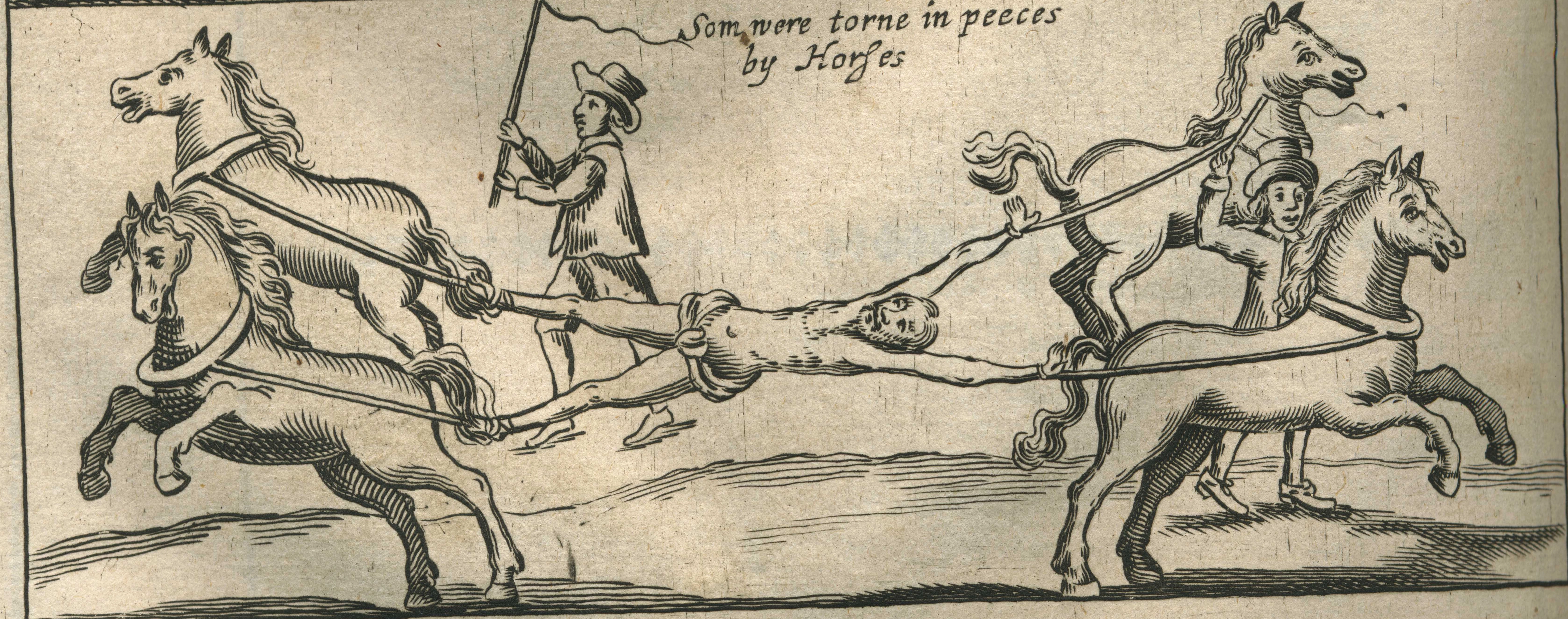Masochism and Empowerment in Nineteenth-century Women’s Novels
Marianne Noble, The Masochistic Pleasures of Sentimental Literature (Princeton University Press, 2000) This is another book that lies outside the geographical and temporal scope of Pain, Pleasure and Perversity, but is nevertheless of interest in the context of the genealogy of masochism (which is, I suppose, the central underlying theme of my own …
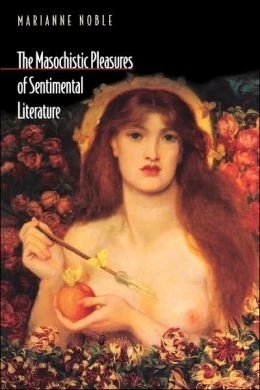
Sexual flagellation in early modern times
Foucault’s claims about the frankness and tolerance of early modern discourse (Michel Foucault, Histoire de la Sexualité 1: La Volonté de Savoir, Paris, 1976, p. 9.) are echoed by Toulalan, who says, ‘feelings of shame in desiring to be whipped to achieve…

Seventeenth-Century Tidbits #4: More about bras
Just when you think you know something someone comes along and turns it all upside down! There I was - along with pretty much everyone else who'd bothered to give the matter a second thought - all cocooned in my certainty that the early modern breast was corseted, and someone goes and digs up a…

Suffering in Early Modern Germany
Ronald K. Rittgers, The Reformation of Suffering: Pastoral Theology and Lay Piety in Late Medieval and Early Modern Germany (OUP, 2012). Another recent publication, geographically outside the scope of my book, but thematically very much on-topic. Rittgers emphasizes Protestant patience in accepting suffering as part of God's will, but - unlike Meli…

Ignatius Loyola
Dominique Bouhours (The Life of St. Ignatius, London, 1686, pp. 64–5) recounts how Ignatius, wandering between the French and Spanish armies, is suspected of being a spy and apprehended by some Spanish soldiers: They stript him, and carried him in his shirt to their Captain. The Remembrance of Jesus Christ, expos’d naked to the Eyes…

John Bunyan
Given that Bunyan accepts the premises of a God who can actually bestow an eternity of bliss on the chosen and a devil who will eternally torture the condemned it makes good sense for him to submit to the metaphorical ‘rod’ of his Lord for the sake of the salvation of his soul. The belief…
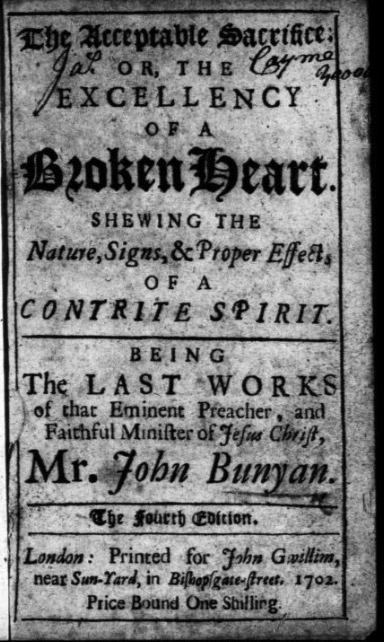
Discourses of Suffering on Facebook
Click here for Discourses of Suffering on Facebook!…
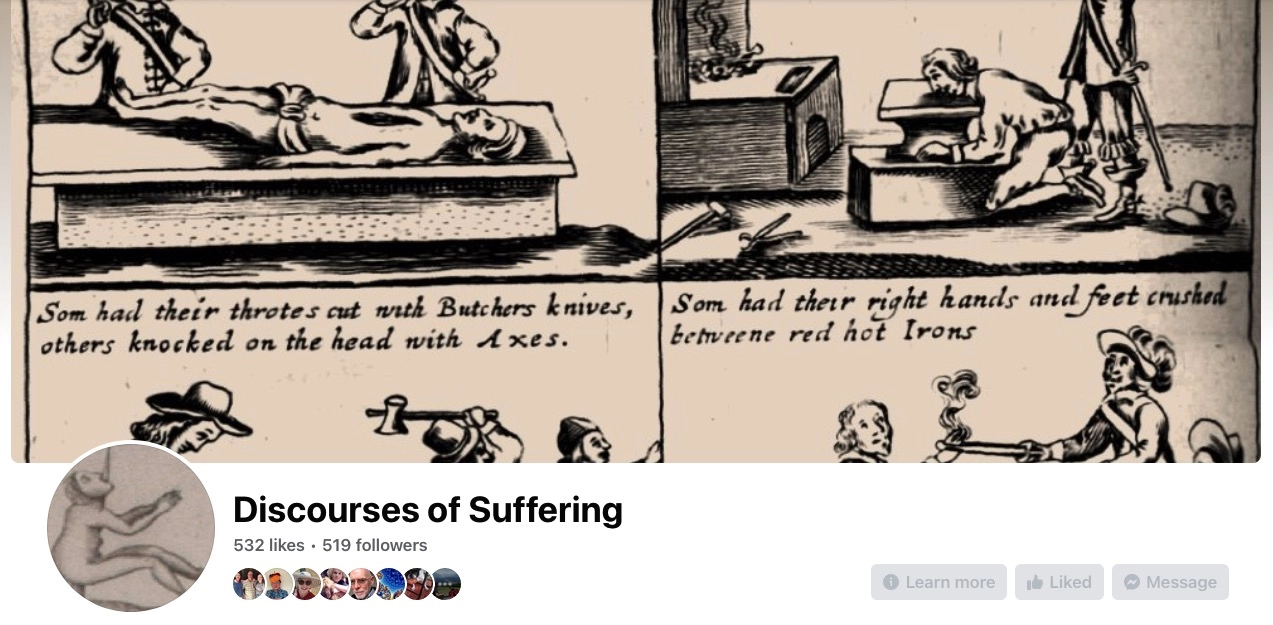
Epicureanism and sedition
Misconceptions about Epicureanism were rife during the early modern period. The most deep-rooted and persistent misconception of all was the equation of Epicureanism with hedonism. Despite the sixteenth-century ‘“rehabilitation” of Epicurus by Valla, Erasmus, Ficino, and Landino (among others)’, and the fact that ‘Montaigne and Burton among others …
Toulalan, _Imagining Sex_
Toulalan's book gives a fairly comprehensive insight into attitudes towards sex in the seventeenth century, building on the insights gained by works like Ian Moulton, Before Pornography: Erotic Writing in Early Modern England (OUP, 2000), but I have a fair few criticisms. Toulalan assumes that Foucault got it right in saying that, at the dawn…
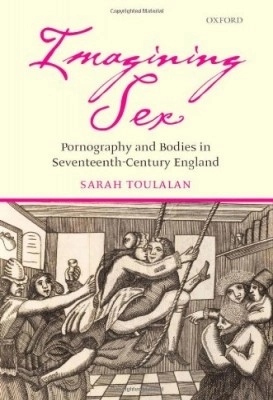
Loving one’s enemies
Despite institutionalized punishments that most people today would consider to be cruel, emphasis on compassion - a heartfelt assertion that ‘true Christians haue compassion towards their enemies’ (Thomas Wilson, Saints by Calling: or Called to be Saints, London, 1620, p. 386) - is one of the salient features of seventeenth-century Protestant disco…
